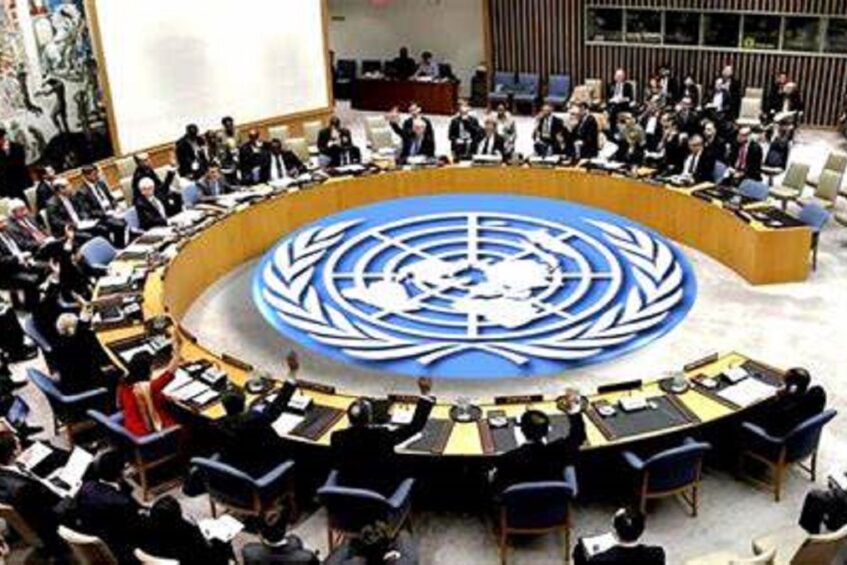
UN Security Council members vote during a session. (File photo/Courtesy).
The United Nations Security Council on May 30, 2023, extended for one year the sanctions regime imposed on South Sudan, including an arms embargo, assets freeze, and travel bans despite protests from Juba.
The sanctions regime was imposed in 2018 during the South Sudanese civil war in what the UN believes was a measure to control the flow of weapons into the country and protect civilians.
This year, ten countries; Albania, Brazil, Ecuador, France, Japan, Malta, Switzerland, United Arab Emirates, United Kingdom, and the United States voted in favor of extending the sanctions regime, hence Resolution 2683 (2023) was adopted.
China abstained from voting for the fifth time, alongside Gabon, Ghana, Mozambique, and the Russian Federation.
The abstaining members stressed that instead of sanctions, the country needs a carefully managed support system to facilitate its transitional journey and overcome its security issues.
In a speech at the Security Council meeting, China’s representative to the UNSC, Ambassador Geng Shuang said the arms embargo impedes peace implementation and the country’s efforts to enhance security.
“For quite some time, the sanctions imposed by the Security Council have seriously hampered South Sudan’s implementation of the revitalized agreement and its efforts to enhance security capabilities, develop economic and trade ties, and carry out humanitarian operations,” said Shuang.
“In light of this, China has consistently held a cautious attitude toward maintaining the said sanctions and has on multiple occasions abstained from voting on the resolutions extending the sanctions.”
China cited the IGAD meeting in November 2022 calling on the Security Council to lift the arms embargo and other sanctions against the country.
“Regrettably, the pen-holder ignored the positive progress that South Sudan had registered on multiple fronts against the sanctions benchmarks and disregarded the just cause of the countries concerned and the international community,” she said.
The Chinese diplomat said the United States, which is the pen holder has further included more items in the embargo list of the early draft of the revolution, added criteria for listing, leveled accusations, and put pressure on the South Sudanese authorities.
She said such practices are unacceptable.
“China has always believed that the Security Council should handle the issue of sanctions in a prudent and responsible manner, carefully calibrate the intensity and scope of sanctions, and stay committed to creating favorable conditions for political settlement.”
Ambassador Shuang also said electoral organization, financial management, and the issue of exploitation of natural resources should be decided by the South Sudanese government and people.
She also objected to the inclusion of “obstruction of free and fair elections into the listing criteria” which she says “interferes with South Sudan’s affairs on issues such as finance, anti-corruption and resource management.”
She suggested the international community should have taken an objective view of the difficulties and challenges South Sudan faces in improving its national governance and “give the country the necessary patience and encouragement.”
Meanwhile, the Security Council said it would review arms embargo measures in the light of progress achieved on the key benchmarks in the 2018 peace deal.
It also requested the Secretary-General to conduct an assessment of progress achieved no later than 15 April 2024.
Support Eye Radio, the first independent radio broadcaster of news, information & entertainment in South Sudan.
Make a monthly or a one off contribution.
Copyright 2024. All rights reserved. Eye Radio is a product of Eye Media Limited.